- Home
- Roald Dahl
Innocence Page 18
Innocence Read online
Page 18
I was twenty-six years old when I arrived in Washington, and I still had no thoughts of becoming a writer.
During the morning of my third day, I was sitting in my new office at the British Embassy and wondering what on earth I was meant to be doing, when there was a knock on my door. ‘Come in.’
A very small man with thick steel-rimmed spectacles shuffled shyly into the room. ‘Forgive me for bothering you,’ he said.
‘You aren’t bothering me at all,’ I answered. ‘I’m not doing a thing.’
He stood before me looking very uncomfortable and out of place. I thought perhaps he was going to ask for a job.
‘My name,’ he said, ‘is Forester. C. S. Forester.’
I nearly fell out of my chair. ‘Are you joking?’ I said.
‘No,’ he said, smiling. ‘That’s me.’
And it was. It was the great writer himself, the inventor of Captain Hornblower and the best teller of tales about the sea since Joseph Conrad. I asked him to take a seat.
‘Look,’ he said. ‘I’m too old for the war. I live over here now. The only thing I can do to help is to write things about Britain for the American papers and magazines. We need all the help America can give us. A magazine called the Saturday Evening Post will publish any story I write. I have a contract with them. And I have come to you because I think you might have a good story to tell. I mean about flying.’
‘No more than thousands of others,’ I said. ‘There are lots of pilots who have shot down many more planes than me.’
‘That’s not the point,’ Forester said. ‘You are now in America, and because you have, as they say over here, “been in combat”, you are a rare bird on this side of the Atlantic. Don’t forget they have only just entered the war.’
‘What do you want me to do?’ I asked.
‘Come and have lunch with me,’ he said. ‘And while we’re eating, you can tell me all about it. Tell me your most exciting adventure and I’ll write it up for the Saturday Evening Post. Every little bit helps.’
I was thrilled. I had never met a famous writer before. I examined him closely as he sat in my office. What astonished me was that he looked so ordinary. There was nothing in the least unusual about him. His face, his conversation, his eyes behind the spectacles, even his clothes were all exceedingly normal. And yet here was a writer of stories who was famous the world over. His books had been read by millions of people. I expected sparks to be shooting out of his head, or at the very least, he should have been wearing a long green cloak and a floppy hat with a wide brim.
But no. And it was then I began to realize for the first time that there are two distinct sides to a writer of fiction. First, there is the side he displays to the public, that of an ordinary person like anyone else, a person who does ordinary things and speaks an ordinary language. Second, there is the secret side which comes out in him only after he has closed the door of his workroom and is completely alone. It is then that he slips into another world altogether, a world where his imagination takes over and he finds himself actually living in the places he is writing about at that moment. I myself, if you want to know, fall into a kind of trance and everything around me disappears. I see only the point of my pencil moving over the paper, and quite often two hours go by as though they were a couple of seconds.
‘Come along,’ C. S. Forester said to me. ‘Let’s go to lunch. You don’t seem to have anything else to do.’
As I walked out of the Embassy side by side with the great man, I was churning with excitement. I had read all the Hornblowers and just about everything else he had written. I had, and still have, a great love for books about the sea. I had read all of Conrad and all of that other splendid sea-writer, Captain Marryat (Mr Midshipman Easy, From Powder Monkey to Admiral, etc.), and now here I was about to have lunch with somebody who, to my mind, was also pretty terrific.
He took me to a small expensive French restaurant somewhere near the Mayflower Hotel in Washington. He ordered a sumptuous lunch, then he produced a notebook and a pencil (ballpoint pens had not been invented in 1942) and laid them on the tablecloth. ‘Now,’ he said, ‘tell me about the most exciting or frightening or dangerous thing that happened to you when you were flying fighter planes.’
I tried to get going. I started telling him about the time I was shot down in the Western Desert and the plane had burst into flames.
The waitress brought two plates of smoked salmon. While we tried to eat it, I was trying to talk and Forester was trying to take notes.
The main course was roast duck with vegetables and potatoes and a thick rich gravy. This was a dish that required one’s full attention as well as two hands. My narrative began to flounder. Forester kept putting down the pencil and picking up the fork, and vice versa. Things weren’t going well. And apart from that, I have never been much good at telling stories aloud.
‘Look,’ I said. ‘If you like, I’ll try to write down on paper what happened and send it to you. Then you can rewrite it properly yourself in your own time. Wouldn’t that be easier? I could do it tonight.’
That, though I didn’t know it at the time, was the moment that changed my life.
‘A splendid idea,’ Forester said. ‘Then I can put this silly notebook away and we can enjoy our lunch. Would you really mind doing that for me?’
‘I don’t mind a bit,’ I said. ‘But you mustn’t expect it to be any good. I’ll just put down the facts.’
‘Don’t worry,’ he said. ‘So long as the facts are there, I can write the story. But please,’ he added, ‘let me have plenty of detail. That’s what counts in our business, tiny little details, like you had a broken shoelace on your left shoe, or a fly settled on the rim of your glass at lunch, or the man you were talking to had a broken front tooth. Try to think back and remember everything.’
‘I’ll do my best,’ I said.
He gave me an address where I could send the story, and then we forgot all about it and finished our lunch at leisure. But Mr Forester was not a great talker. He certainly couldn’t talk as well as he wrote, and although he was kind and gentle, no sparks ever flew out of his head and I might just as well have been talking to an intelligent stockbroker or lawyer.
That night, in the small house I lived in alone in a suburb of Washington, I sat down and wrote my story. I started at about seven o’clock and finished at midnight. I remember I had a glass of Portuguese brandy to keep me going. For the first time in my life, I became totally absorbed in what I was doing. I floated back in time and once again I was in the sizzling hot desert of Libya, with white sand underfoot, climbing up into the cockpit of the old Gladiator, strapping myself in, adjusting my helmet, starting the motor and taxiing out for take-off. It was astonishing how everything came back to me with absolute clarity. Writing it down on paper was not difficult. The story seemed to be telling itself, and the hand that held the pencil moved rapidly back and forth across each page. Just for fun, when it was finished, I gave it a title. I called it ‘A Piece of Cake’.
The next day, somebody in the Embassy typed it out for me and I sent it off to Mr Forester. Then I forgot all about it.
Exactly two weeks later, I received a reply from the great man. It said:
Dear RD, You were meant to give me notes, not a finished story. I’m bowled over. Your piece is marvellous. It is the work of a gifted writer. I didn’t touch a word of it. I sent it at once under your name to my agent, Harold Matson, asking him to offer it to the Saturday Evening Post with my personal recommendation. You will be happy to hear that the Post accepted it immediately and have paid one thousand dollars. Mr Matson’s commission is ten per cent. I enclose his check for nine hundred dollars. It’s all yours. As you will see from Mr Matson’s letter, which I also enclose, the Post is asking if you will write more stories for them. I do hope you will. Did you know you were a writer? With my very best wishes and congratulations, C. S. Forester.
‘A Piece of Cake’ is printed at the end of this book.fn1
> Well! I thought. My goodness me! Nine hundred dollars! And they’re going to print it! But surely it can’t be as easy as all that?
Oddly enough, it was.
The next story I wrote was fiction. I made it up. Don’t ask me why. And Mr Matson sold that one, too. Out there in Washington in the evenings over the next two years, I wrote eleven short stories. All were sold to American magazines, and later they were published in a little book called Over to You.
Early on in this period, I also had a go at a story for children. It was called ‘The Gremlins’, and this I believe was the first time the word had been used. In my story, Gremlins were tiny men who lived on RAF fighter-planes and bombers, and it was the Gremlins, not the enemy, who were responsible for all the bullet-holes and burning engines and crashes that took place during combat. The Gremlins had wives called Fifinellas, and children called Widgets, and although the story itself was clearly the work of an inexperienced writer, it was bought by Walt Disney who decided he was going to make it into a full-length animated film. But first it was published in Cosmopolitan Magazine with Disney’s coloured illustrations (December 1942), and from then on, news of the Gremlins spread rapidly through the whole of the RAF and the United States Air Force, and they became something of a legend.
Because of the Gremlins, I was given three weeks’ leave from my duties at the Embassy in Washington and whisked out to Hollywood. There, I was put up at Disney’s expense in a luxurious Beverly Hills hotel and given a huge shiny car to drive about in. Each day, I worked with the great Disney at his studios in Burbank, roughing out the story-line for the forthcoming film. I had a ball. I was still only twenty-six. I attended story-conferences in Disney’s enormous office where every word spoken, every suggestion made, was taken down by a stenographer and typed out afterwards. I mooched around the rooms where the gifted and obstreperous animators worked, the men who had already created Snow White, Dumbo, Bambi and other marvellous films, and in those days, so long as these crazy artists did their work, Disney didn’t care when they turned up at the studio or how they behaved.
When my time was up, I went back to Washington and left them to it.
My Gremlin story was published as a children’s book in New York and London, full of Disney’s colour illustrations, and it was called of course The Gremlins. Copies are very scarce now and hard to come by. I myself have only one. The film, also, was never finished. I have a feeling that Disney was not really very comfortable with this particular fantasy. Out there in Hollywood, he was a long way away from the great war in the air that was going on in Europe. Furthermore, it was a story about the Royal Air Force and not about his own countrymen, and that, I think, added to his sense of bewilderment. So in the end, he lost interest and dropped the whole idea.
My little Gremlin book caused something else quite extraordinary to happen to me in those wartime Washington days. Eleanor Roosevelt read it to her grandchildren in the White House and was apparently much taken with it. I was invited to dinner with her and the President. I went, shaking with excitement. We had a splendid time and I was invited again. Then Mrs Roosevelt began asking me for week-ends to Hyde Park, the President’s country house. Up there, believe it or not, I spent a good deal of time alone with Franklin Roosevelt during his relaxing hours. I would sit with him while he mixed the martinis before Sunday lunch, and he would say things like, ‘I’ve just had an interesting cable from Mr Churchill.’ Then he would tell me what it said, something perhaps about new plans for the bombing of Germany or the sinking of U-Boats, and I would do my best to appear calm and chatty, though actually I was trembling at the realization that the most powerful man in the world was telling me these mighty secrets. Sometimes he drove me around the estate in his car, an old Ford I think it was, that had been specially adapted for his paralysed legs. It had no pedals. All the controls were worked by his hands. His secret-service men would lift him out of his wheel-chair into the driver’s seat, then he would wave them away and off we would go, driving at terrific speeds along the narrow roads.
One Sunday during lunch at Hyde Park, Franklin Roosevelt told a story that shook the assembled guests. There were about fourteen of us sitting on both sides of the long dining-room table, including Princess Martha of Norway and several members of the Cabinet. We were eating a rather insipid white fish covered with a thick grey sauce. Suddenly the President pointed a finger at me and said, ‘We have an Englishman here. Let me tell you what happened to another Englishman, a representative of the King, who was in Washington in the year 1827.’ He gave the man’s name, but I’ve forgotten it. Then he went on, ‘While he was over here, this fellow died, and the British for some reason insisted that his body be sent home to England for burial. Now the only way to do that in those days was to pickle it in alcohol. So the body was put into a barrel of rum. The barrel was lashed to the mast of a schooner and the ship sailed for home. After about four weeks at sea, the captain of the schooner noticed a most frightful stench coming from the barrel. And in the end, the smell became so appalling they had to cut the barrel loose and roll it overboard. But do you know why it stank so badly?’ the President asked, beaming at the guests with that famous wide smile of his. ‘I will tell you exactly why. Some of the sailors had drilled a hole in the bottom of the barrel and had inserted a bung. Then every night they had been helping themselves to the rum. And when they had drunk it all, that’s when the trouble started.’ Franklin Roosevelt let out a great roar of laughter. Several females at the table turned very pale and I saw them pushing their plates of boiled white fish gently away.
All the stories I wrote in those early days were fiction, except for that first one I did with C. S. Forester. Nonfiction, which means writing about things that have actually taken place, doesn’t interest me. I enjoy least of all writing about my own experiences. And that explains why this story is so lacking in detail. I could quite easily have described what it was like to be in a dog-fight with German fighters fifteen thousand feet above the Parthenon in Athens, or the thrill of chasing a Junkers 88 in and out the mountain peaks in Northern Greece, but I don’t want to do it. For me, the pleasure of writing comes with inventing stories.
Apart from the Forester story, I think I have only written one other non-fiction piece in my life, and I did this only because the subject was so enthralling I couldn’t resist it. The story is called ‘The Mildenhall Treasure’, and it’s in this book.fn2
So there you are. That’s how I became a writer. Had I not been lucky enough to meet Mr Forester, it would probably never have happened.
Now, more than thirty years later, I’m still slogging away. To me, the most important and difficult thing about writing fiction is to find the plot. Good original plots are very hard to come by. You never know when a lovely idea is going to flit suddenly into your mind, but by golly, when it does come along, you grab it with both hands and hang on to it tight. The trick is to write it down at once, otherwise you’ll forget it. A good plot is like a dream. If you don’t write down your dream on paper the moment you wake up, the chances are you’ll forget it and it’ll be gone for ever.
So when an idea for a story comes popping into my mind, I rush for a pencil, a crayon, a lipstick, anything that will write, and scribble a few words that will later remind me of the idea. Often, one word is enough. I was once driving alone on a country road and an idea came for a story about someone getting stuck in an elevator between two floors in an empty house. I had nothing to write with in the car. So I stopped and got out. The back of the car was covered with dust. With one finger I wrote in the dust the single word elevator. That was enough. As soon as I got home, I went straight to my workroom and wrote the idea down in an old red-covered school exercise-book which is simply labelled ‘Short Stories’.
I have had this book ever since I started trying to write seriously. There are ninety-eight pages in the book. I’ve counted them. And just about every one of those pages is filled up on both sides with these so-called story ideas. Many are
no good. But just about every story and every children’s book I have ever written has started out as a three- or four-line note in this little, much-worn red-covered volume. For example:
This became Charlie and the Chocolate Factory.
Fantastic Mr Fox.
‘The Boy Who Talked with Animals.’
This became ‘Henry Sugar’.
Sometimes, these little scribbles will stay unused in the notebook for five or even ten years. But the promising ones are always used in the end. And if they show nothing else, they do, I think, demonstrate from what slender threads a children’s book or a short story must ultimately be woven. The story builds and expands while you are writing it. All the best stuff comes at the desk. But you can’t even start to write that story unless you have the beginnings of a plot. Without my little notebook, I would be quite helpless.
ROALD DAHL
* * *
Roald Dahl was a spy, ace fighter pilot, chocolate historian and medical inventor. He was also the author of Charlie and the Chocolate Factory, Matilda, The BFG and many more brilliant stories. He remains the World’s No.1 storyteller.
CHARMING BAKER
* * *
Born in Hampshire in 1964, Charming Baker spent much of his early life travelling around the world following his father, a commando in the British Army. At the age of twelve, he and his family finally settled in Ripon, North Yorkshire. Baker left school at sixteen and worked in various manual jobs. In 1985, having gone back to college, he was accepted on to a course at the prestigious Central Saint Martins, where he later returned as a lecturer. After graduating, Baker worked for many years as a commercial artist as well as developing his personal work.

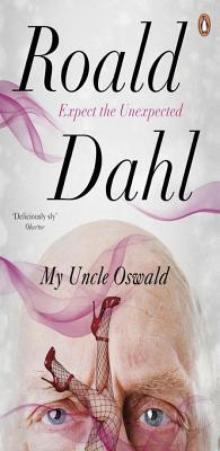 My Uncle Oswald
My Uncle Oswald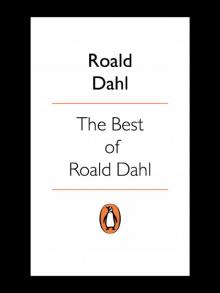 The Best of Roald Dahl
The Best of Roald Dahl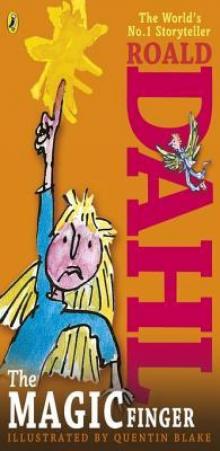 The Magic Finger
The Magic Finger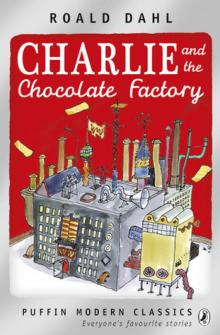 Charlie and the Chocolate Factory
Charlie and the Chocolate Factory Fantastic Mr Fox
Fantastic Mr Fox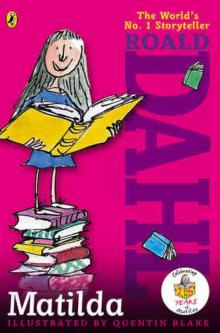 Matilda
Matilda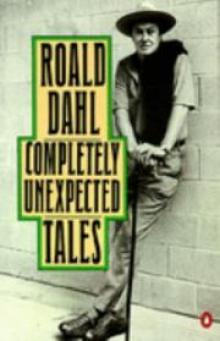 Completely Unexpected Tales: Tales of the Unexpected. More Tales of the Unexpected
Completely Unexpected Tales: Tales of the Unexpected. More Tales of the Unexpected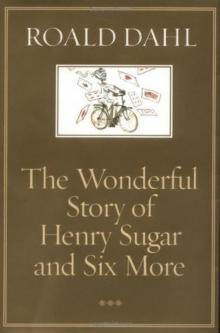 The Wonderful Story of Henry Sugar and Six More
The Wonderful Story of Henry Sugar and Six More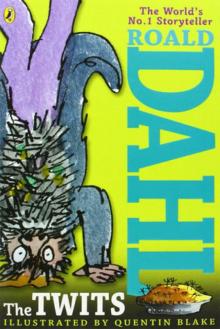 The Twits
The Twits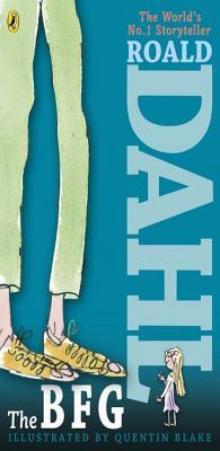 The BFG
The BFG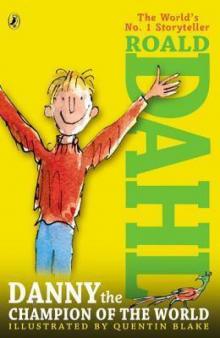 Danny the Champion of the World
Danny the Champion of the World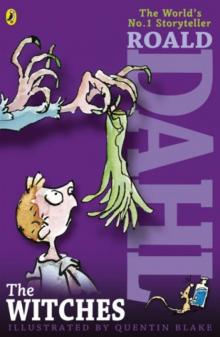 The Witches
The Witches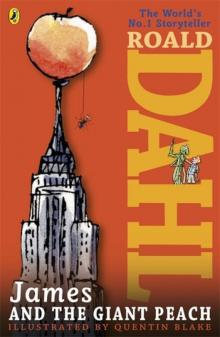 James and the Giant Peach
James and the Giant Peach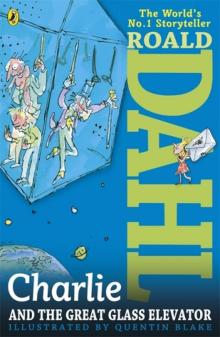 Charlie and the Great Glass Elevator
Charlie and the Great Glass Elevator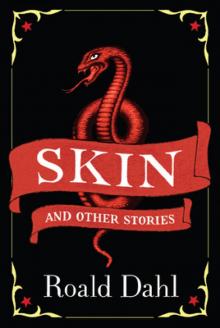 Skin and Other Stories
Skin and Other Stories Kiss Kiss
Kiss Kiss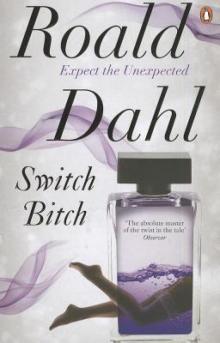 Switch Bitch
Switch Bitch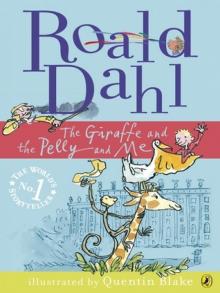 The Giraffe and the Pelly and Me
The Giraffe and the Pelly and Me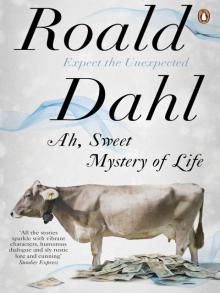 Ah, Sweet Mystery of Life
Ah, Sweet Mystery of Life Fear
Fear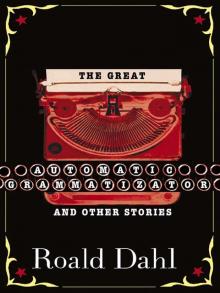 The Great Automatic Grammatizator and Other Stories
The Great Automatic Grammatizator and Other Stories Someone Like You
Someone Like You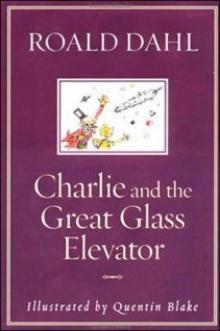 Charlie and the Great Glass Elevator c-2
Charlie and the Great Glass Elevator c-2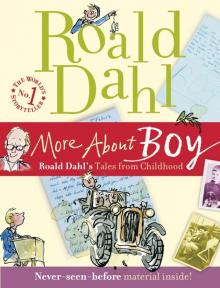 More About Boy
More About Boy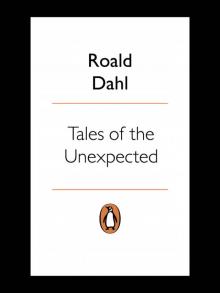 Tales of the Unexpected
Tales of the Unexpected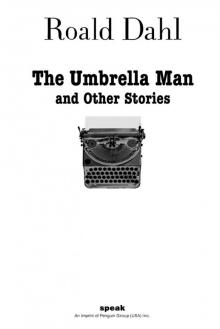 The Umbrella Man and Other Stories
The Umbrella Man and Other Stories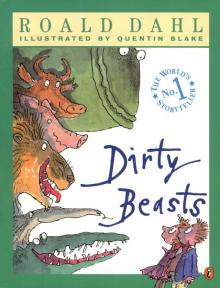 Dirty Beasts
Dirty Beasts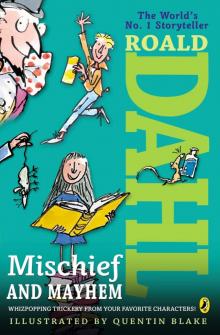 Roald Dahl's Mischief and Mayhem
Roald Dahl's Mischief and Mayhem The Collected Short Stories of Roald Dahl, Volume 1
The Collected Short Stories of Roald Dahl, Volume 1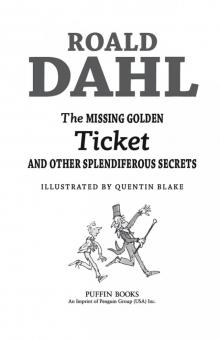 The Missing Golden Ticket and Other Splendiferous Secrets
The Missing Golden Ticket and Other Splendiferous Secrets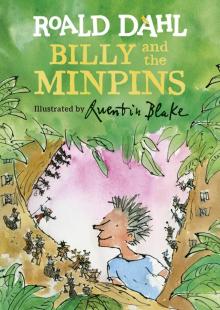 Billy and the Minpins
Billy and the Minpins Over to You
Over to You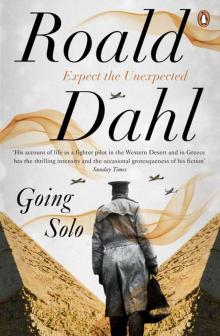 Going Solo
Going Solo Deception
Deception War
War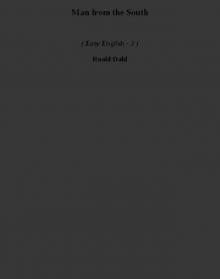 Man from the South ee-3
Man from the South ee-3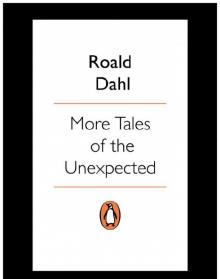 More Tales of the Unexpected
More Tales of the Unexpected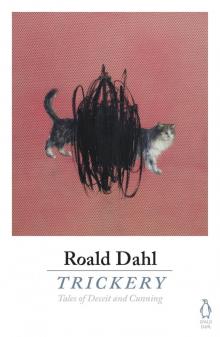 Trickery
Trickery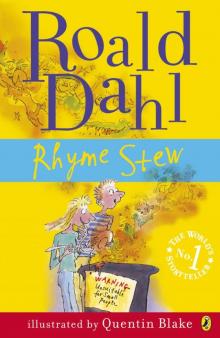 Rhyme Stew
Rhyme Stew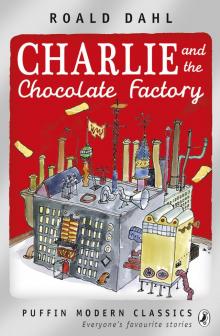 Charlie and the Chocolate Factory (Puffin Modern Classics relaunch)
Charlie and the Chocolate Factory (Puffin Modern Classics relaunch)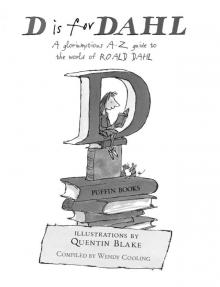 D is for Dahl
D is for Dahl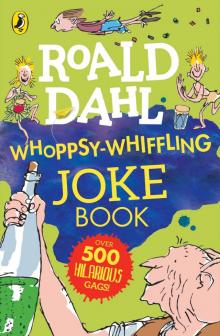 Roald Dahl Whoppsy-Whiffling Joke Book
Roald Dahl Whoppsy-Whiffling Joke Book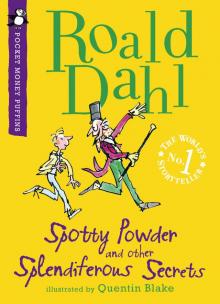 Spotty Powder and other Splendiferous Secrets
Spotty Powder and other Splendiferous Secrets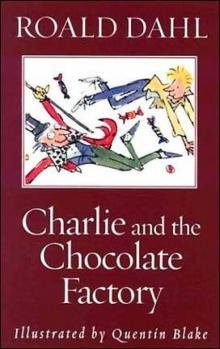 Charlie and the Chocolate Factory c-1
Charlie and the Chocolate Factory c-1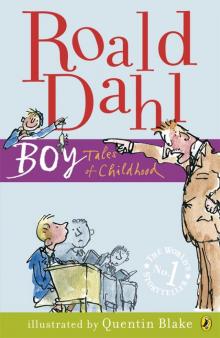 Boy
Boy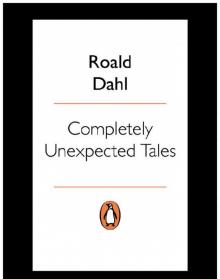 Completely Unexpected Tales
Completely Unexpected Tales Madness
Madness Innocence
Innocence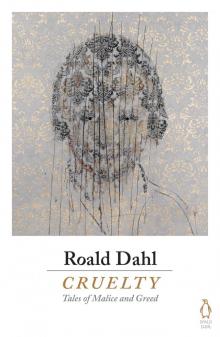 Cruelty
Cruelty George's Marvellous Medicine
George's Marvellous Medicine